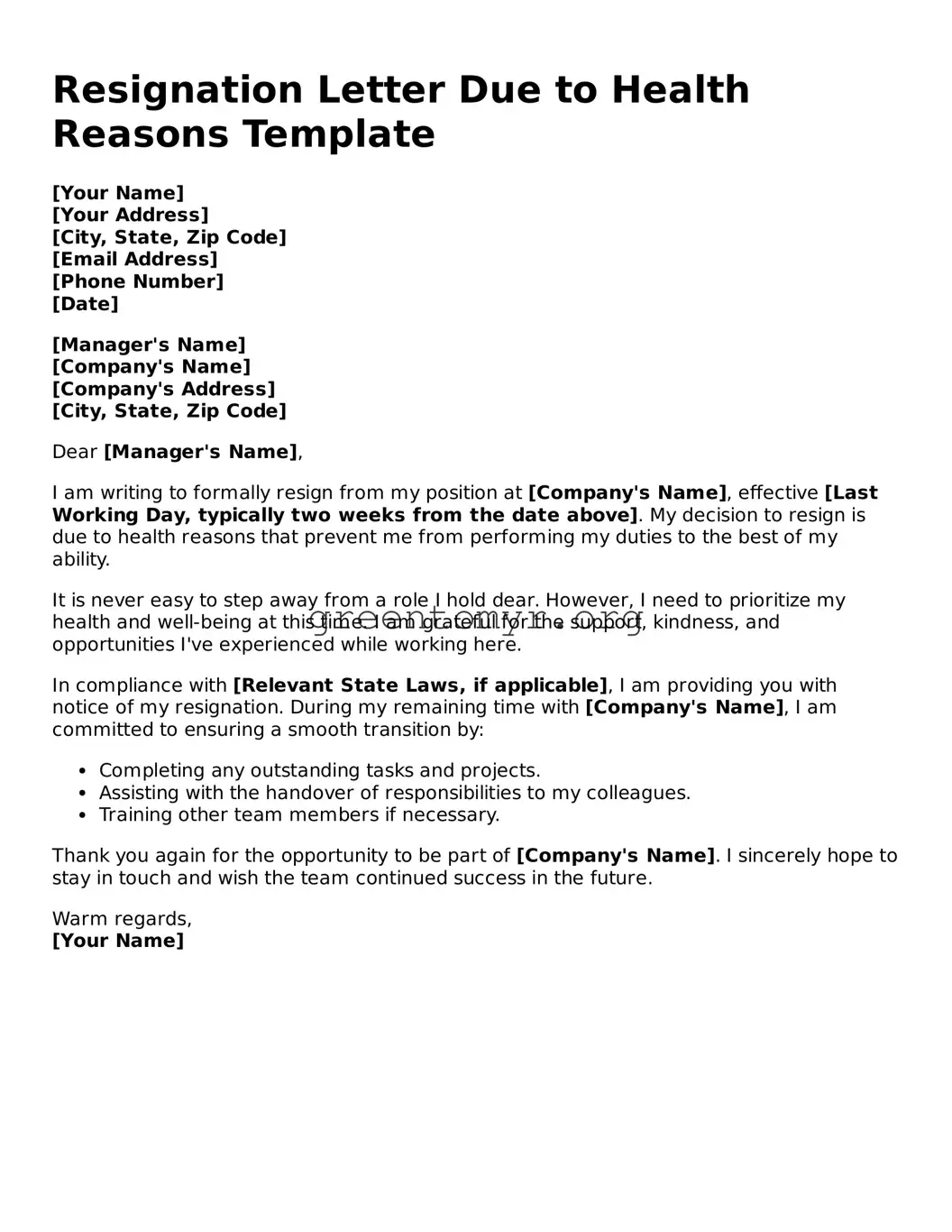Resignation Letter Due to Health Reasons Template
[Your Name]
[Your Address]
[City, State, Zip Code]
[Email Address]
[Phone Number]
[Date]
[Manager's Name]
[Company's Name]
[Company's Address]
[City, State, Zip Code]
Dear [Manager's Name],
I am writing to formally resign from my position at [Company's Name], effective [Last Working Day, typically two weeks from the date above]. My decision to resign is due to health reasons that prevent me from performing my duties to the best of my ability.
It is never easy to step away from a role I hold dear. However, I need to prioritize my health and well-being at this time. I am grateful for the support, kindness, and opportunities I've experienced while working here.
In compliance with [Relevant State Laws, if applicable], I am providing you with notice of my resignation. During my remaining time with [Company's Name], I am committed to ensuring a smooth transition by:
- Completing any outstanding tasks and projects.
- Assisting with the handover of responsibilities to my colleagues.
- Training other team members if necessary.
Thank you again for the opportunity to be part of [Company's Name]. I sincerely hope to stay in touch and wish the team continued success in the future.
Warm regards,
[Your Name]
